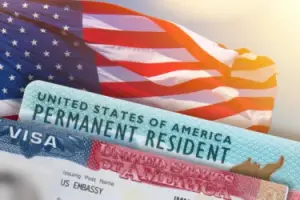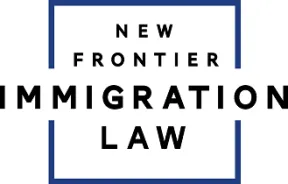
The process of immigrating to the United States can be challenging to understand. Not only are there multiple different kinds of visas, but also, the application process, appeals, and requirements for immigration are complex. If you’re struggling to understand the ins and outs of family-based immigration and what may be required to move your family to the US, you may benefit from the help of an immigration lawyer.
However, you can get a head start by reading our guide on everything you need to know about family-based immigration. This article can give you the resources and foundational information you need to start the process.
What Is Family-Based Immigration?
Family-based immigration is the process by which a US citizen or lawful permanent resident may sponsor a family member to become a permanent resident. Per the Bureau of Consular Affairs, a sponsor can petition for different family members, depending on their citizenship status.
- A US citizen can file a petition for a spouse, child, parent, or brother or sister. The sponsor can file unlimited petitions for family members in these categories per year.
- A lawful permanent resident (someone who has a green card) can file a petition for their spouse and unmarried children. These petitions are also unlimited.
Both US citizens and green card holders can petition for more extended family members based on preference order, as the United States Citizenship and Immigration Services (USCIS) lists. These petitions are limited.
For a free case review , call
What do I Have to Do to Get a Green Card for My Family?
A sponsor must be at least 21 years old and either a US citizen or a lawful permanent resident. Sponsors who meet these requirements must fill out a separate I-130 form for each person, per the USCIS. For each of the following scenarios, the applicant (or sponsor) will also have to pay fees.
The Process If the Applicant Already Lives in the United States
Most of the time, an applicant will have to wait until the I-130 has been approved before filing the I-485 (application to register permanent residence or adjust status) – also known as the application for a Green Card. Sometimes, they may be eligible to file their application for permanent residence at the same time–typically if they are an immediate relative of the sponsor.
Applicants may be asked to attend an interview, during which they will answer questions under oath. They will be required to bring original documents, such as those that have been included in the application.
The Process If the Applicant Lives Outside of the United States
Consular processing, as described by the USCIS, is a slightly different process reserved for immigrants who currently live outside of the United States. After the I-130 has been filed, some special categories of immigrants may need to file additional forms. However, if no additional forms are required, the applicant must wait until their initial application has been approved.
After your application is approved, they will schedule an appointment for an interview. During this interview, they will ask you questions under oath about your application, your documentation, and yourself.
You May Have to File an Appeal or Refile Your Initial Application After a Denial
There are many possible reasons for denials, including errors and insufficient documentation. In the event of a denial, an attorney can reissue the proper forms or file a formal appeal. They can also help you avoid delays in the approval process by overseeing the initial application.
How Long does It Take for Applications to Be Approved?
The time it takes to process and approve an application will depend on many factors, including:
- The backlog of other applications
- How immediate the relationship between the sponsor and the applicant is
- The priority date on the application
For some, approval may come in a few months. Unfortunately, there are a limited number of visas, so it can take years to complete the immigration process. An attorney can clarify what this timeline may look like for your circumstances.
Our immigration lawyers
An Attorney from New Frontier Immigration Law Can Manage Your Applications
The laws and regulations surrounding family-based immigration can quickly become overwhelming. There are so many requirements, background checks, fees, and forms to file. It’s understandable to feel intimidated by the process.
Our firm is dedicated to bringing hope through immigration representation. We want to help you understand the process and your rights while we fight for the future you’ve been waiting for. We provide services like:
- Filing your petitions
- Filing immigration waivers for illegal immigrants
- Defending you and your family from deportation
- Getting immigration bonds
- Appealing denied applications
- Filing motions to reopen your case
Complete a
Free Case Evaluation
Form now
Call or Visit Us Online for Your Consultation
To get started on becoming a sponsor or filing your visa applications, call New Frontier Immigration Law. We hope to make the process easier and simpler while providing hope to each client.





